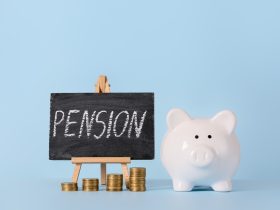To achieve retirement parity, a woman currently in her twenties will have to work 37 years longer than a man of the same age to accumulate the same income, Scottish Widows says
Young women will need to work nearly 40 years longer than men to reach pensions equality with them, according to new calculations.
Women would need nearly four additional decades to catch up to men due to lower average earnings, part-time work and taking time out of paid employment to care for family.
Pension provider Scottish Widows says that younger female savers can expect to have £100,000 less on average in their retirement pot than their male counterparts.
To achieve retirement parity, a woman currently in her twenties will have to work 37 years longer than a man of the same age to accumulate the same income, it said.
The figures from the most recent Scottish Widows women and retirement report have been released in conjunction with International Women’s Day to highlight the progress required to close the pensions gap.
Jackie Leiper, managing director, pensions, stockbroking and distribution at Scottish Widows, said: We know that young women have been some of the hardest hit by the short-term financial impact of the pandemic and this has only exacerbated the challenge of reaching pensions parity.
At the same time, caring responsibilities and high childcare costs are keeping women out of the workforce, lowering their contributions and denting their pension pots, Leiper said.
The number of women being forced to give up work to care for children and family members during the pandemic, along with the impact of job losses on women, could reverse decades of progress in gender equalities, leading figures have warned.
A spokesperson for the Department for Work and Pensions said: Our groundbreaking pension reforms, including automatic enrolment, have helped millions more women save into a pension, many for the first time. Pension participation among eligible women working in the private sector has risen from 40 per cent in 2012, to 86 per cent in 2019.







Leave a Reply